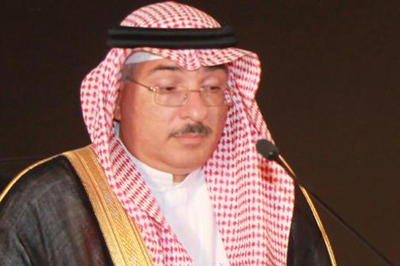Riyadh, Jun 4: The Ministry of Health on Tuesday said the Kingdom’s death toll from the Middle East Respiratory Syndrome (MERS) is actually 282, or 92 more than the tally recorded as of June 2.
 According to the Ministry of Health’s Command & Control Center, which was set up last week by Acting Health Minister Adel Fakeih, the new data came about following a thorough review by the center starting from September 2012 to the present day.
According to the Ministry of Health’s Command & Control Center, which was set up last week by Acting Health Minister Adel Fakeih, the new data came about following a thorough review by the center starting from September 2012 to the present day.
New data also showed that the total number of infections in the Kingdom is actually 688 rather than 575 as reported in the ministry’s website on Monday.
“Following the review, the total number of cases recorded in the Kingdom since 2012 stands at 688 including 282 fatalities; 53 are currently receiving treatment while 353 have recovered,” said the report released by the center on Tuesday.
Earlier in the day, the ministry announced on Twitter that Deputy Health Minister Ziad Memish, who played a frontline role in the campaign against MERS, has been relieved from his post.
Memish was the second top Health Ministry official to lose his post apparently as a result of the coronavirus crisis.
In April, Custodian of the Two Holy Mosques King Abdullah replaced then Health Minister Abdullah Al-Rabeeah as the number of MERS infections and deaths spiked, causing panic among the public.
The king named Labor Minister Fakeih as acting health minister in a concurrent capacity.
Last month, Fakeih sacked the top management of King Fahd Hospital in Jeddah after numerous medical staff reportedly got infected, causing some of the hospital’s Saudi doctors to resign.
No reason was given for the dismissal of Memish, who had been the ministry’s point man in the campaign against MERS since the coronavirus was first discovered in September 2012.
A Reuters report said international scientists interviewed for a Reuters Special Report last month have chided Memish for being reluctant to collaborate with some specialist laboratories around the world offering to help investigate the possible source of MERS and explore how it spreads.
“Experts say the rising number of infections and deaths could have been stopped well within the two years since MERS first emerged — and would have been if Saudi authorities had been more open to outside help offered by specialist teams around the world with the technology, know-how and will to conduct scientific studies,” said the report.
It said Memish was asked last month about the criticisms and said he was “surprised” but did not respond to the allegations directly concerning his own role.
Reuters quoted David Heymann, a professor of infectious disease epidemiology, chairman of Public Health England, and head of global health security at Britain’s Royal Institute of International Affairs, as saying “Saudi Arabia needs to make sure it has appropriate infection control practices in hospitals, where cases are being transmitted, and number two, they need to do the case-control study that will hopefully tell them how people are getting infected.”
Acting Health Minister Fakeih wrote last week in a response to the Reuters Special Report that Saudi Arabia was working with international scientific organizations to improve its response to MERS, and pledged to continue that collaboration, said the report.
The rate of infection has slowed since mid-May, which public health officials say may be a result of improved infection control procedures introduced in Saudi hospitals.
New measures
The Health Ministry said it had put in place new measures to make sure data gathering, reporting and transparency were being observed, including standardization of testing and better guidelines for labelling and storing samples.
“While the review has resulted in a higher total number of previously unreported cases, we still see a decline in the number of new cases reported over the past few weeks,” Tariq Madani, head of the ministry’s scientific advisory board, was quoted as saying in an e-mailed statement.
The main objective of the review was to ensure a more complete and accurate understanding of the MERS-CoV outbreak in the Kingdom. The review has already enhanced the Ministry’s policy development process and improved measures taken to address the situation.
Madani added: “This review has informed the Ministry’s policies, which took stringent action to combat MERS-CoV, announcing the establishment of the new Command and Control Center to increase the level of preparedness for future public health challenges, issuing infection control protocols to contain the spread of the virus, and directly engaging the public with an awareness campaign.”





Comments
Add new comment